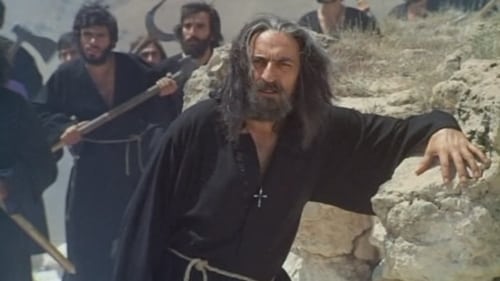
Passenger of Train
In the hot summer of 1917, the nineteen-year-old peasant Georgy Zakareishvili left his village in search of work and, settling on a French ship, soon found himself in Paris, where he married a Frenchwoman. Modest wealth, beloved wife, sons and a faithful friend helped him to endure separation from his homeland. When the opportunity came to his homeland, George was already old and could not postpone the upcoming meeting with his native Georgia. He tried to convey his love to his grandson George: he sang folk songs, taught Georgian, talked about the people of his village. And now, in fulfillment of his grandfather’s orders, George the Younger took his ashes to his homeland...

A group of people who happen to be on the same bus try to get home on the New Year's Eve, but their bus is delayed by numerous obstacles, and the tensions grow.

David-Bek
Two part film about David Bek and Mkhitar Sparapet's major Armenian uprising against Safavid Persia in the Syunik region in the 18th century.

Mikhail Yevgenidze

In the summer of 1917, Vladimir Lenin leaves Petrograd and shelters in Razliv with fellow revolutionary Grigory Zinoviev. In the weeks that follow, Lenin writes his famous "Blue Notebook" advocating proletarian revolution.

Revia
In Arabic, “mameluke” means a white slave, a prisoner. In Egypt, this name was given to prisoners of war who had been sold into slavery from Georgia and other countries of the Caucasus. The action of this drama starts in Georgia in the late 18th century. Two friends are abducted and sold into slavery. One ends up in Egypt, the other - in Venice. Years later, they meet by the ancient pyramids, in the desert where a battle is going on between the armies of Bonaparte and Ali-bey, the ruler of Egypt. In a combat with a French officer, the Mameluke injures him. Falling from his horse onto the sand, the officer exclaims in Georgian: “Vai, nana!” (“Oh, mother!”). And the Mameluke recognizes in him a mate of his childhood games.




